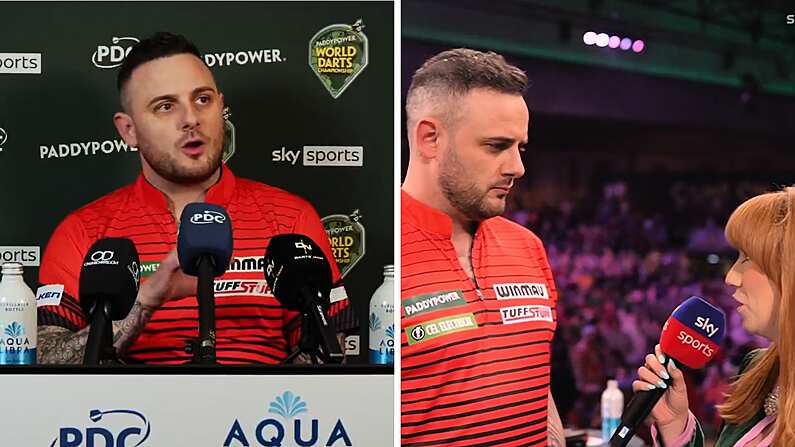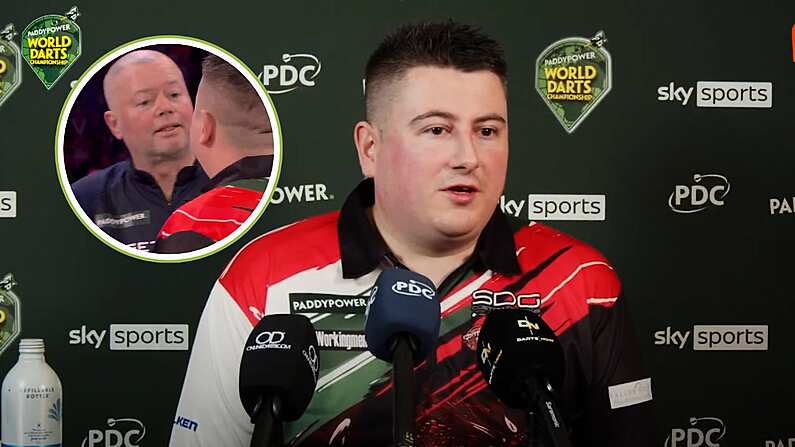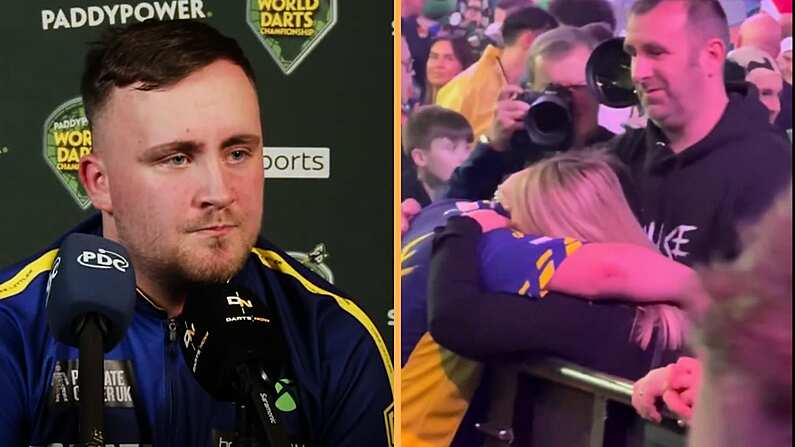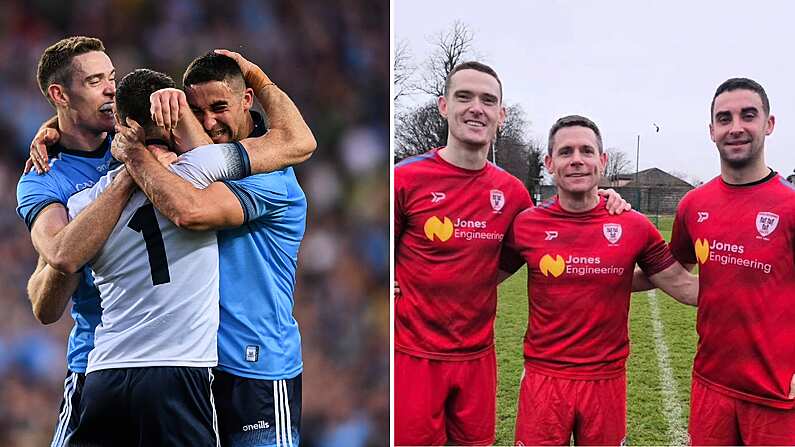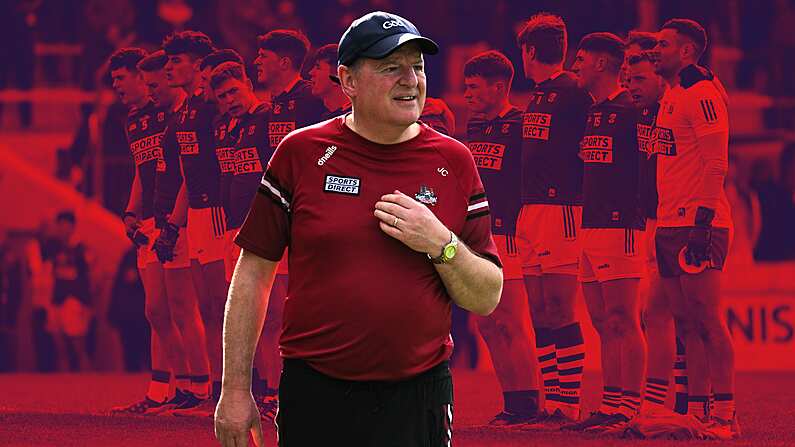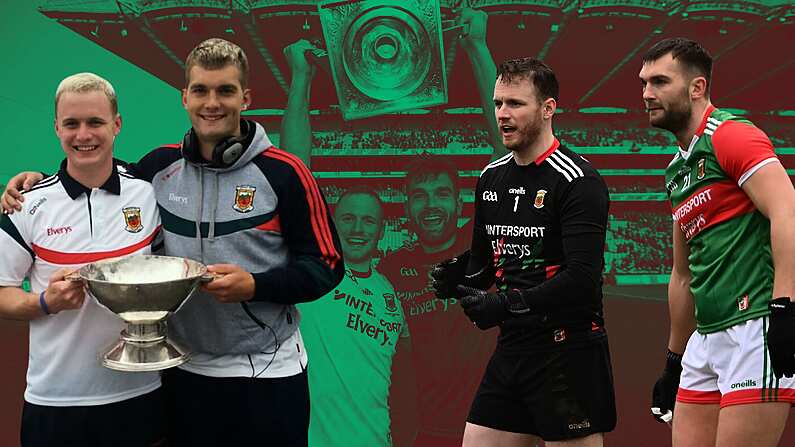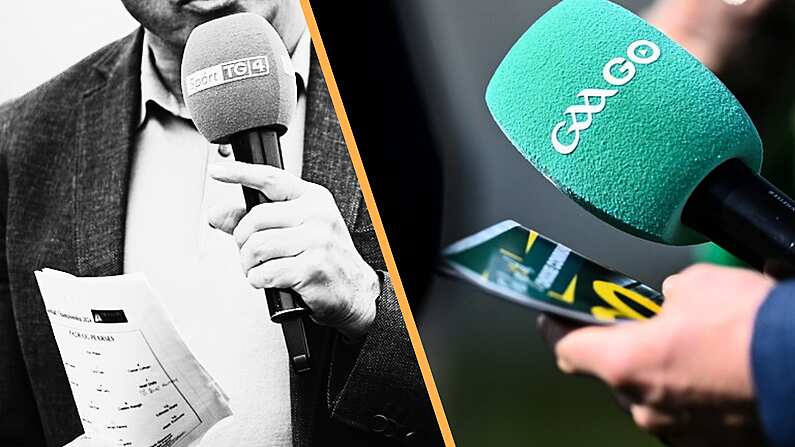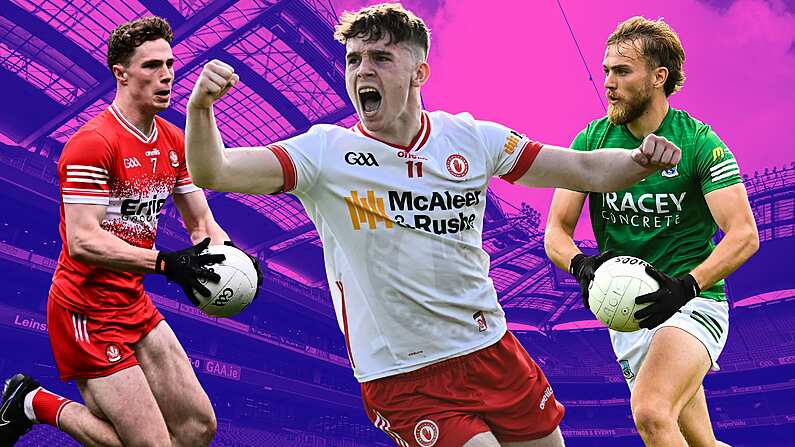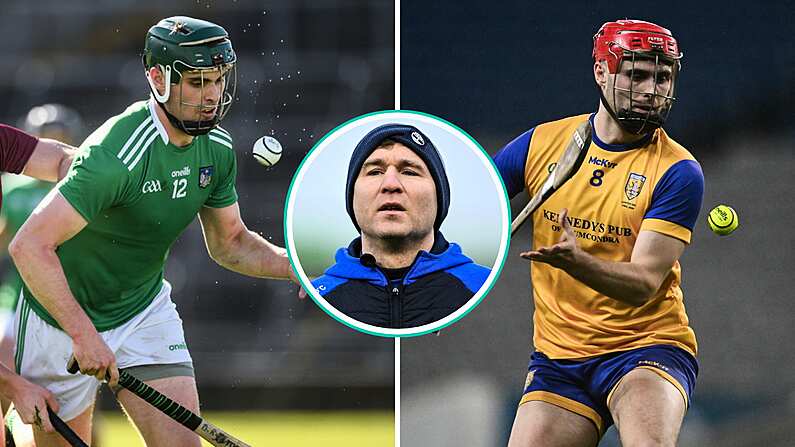The quality of sports coverage is overwhelmingly reliant on an individual's expectations. Is the consumer in search of insight or entertainment? Information or hyperbole? Interactive graphics or back-slapping banter? Maybe the Alexander Pope approach is the only one guaranteed to succeed: “Blessed is he who expects nothing, for he shall never be disappointed.”
This is the fifth season of Sky Sports GAA coverage. Their recent emergence comes amidst a host of accelerated change for sports broadcasting. The black trouser/coral jacket, men at a desk setting the narrative for men at a bar era is rapidly disseminating. Technology has become more paramount, preparation more important, three-piece suits more prominent.
While RTE possess the bulk of respected elder statesmen pundits, the unfortunate fact of modern-day GAA consumption is that they no longer maintain the definitive voice on GAA matters. The sheer volume of GAA coverage is too broad, the quality too high. A big fish in a small pond now must earn its fodder like every other. It is as Cutty forewarned; The game's done changed.
In-game work
For years, the in-game experience was relatively straightforward. The primary wide camera was placed in the main stand over the half-way line, camera A. The television director monitors other cameras on their screen and calls when to swap. This is an old-fashioned, tried and trusted formula.
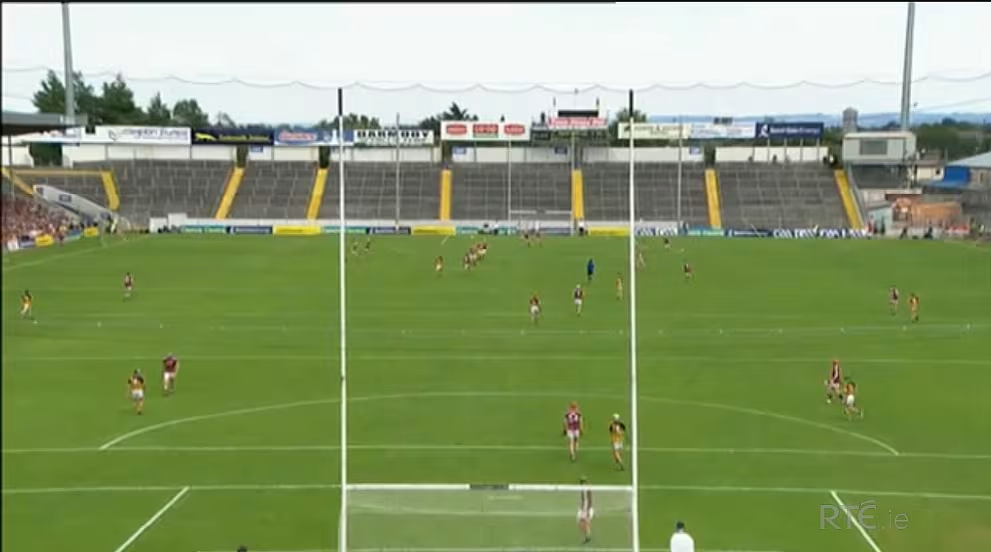
Both broadcasters have used the elevated, behind the goal camera for analysis this season. On Sky Sports, Jamesie O'Connor analysed Anthony Nash's puck-outs with this perspective and it made for compulsive viewing. RTE had the shrewd idea to recruit Derek McGrath after Waterford bowed out of the Championship and viewers were justly rewarded when he broke down Galway's forward movement using the same camera.
Yet Sky have demonstrated creativity here. The high-mount camera is also used in-game, allowing the viewer witness upfield movement prior to kick-outs. They recently introduced 'Fan Cam' which captures from the terrace perspective. It was a welcomed novelty that generally made replays more comprehensive. This sort of ingenuity should be welcomed. Joe Brolly recently claimed he watched the raw footage of the Dublin Longford game from RTÉ's overhead cameras and was full of praise for Dublin's tactical nous. It is a shame no one in RTE thought the viewer might also enjoy this perspective.

Sky Sports Fan Cam
Pundits

Speaking of Joe Brolly, he recently penned a column critical of the 'bullshit' science approach taken by certain rival pundits, 'Sky told us at the weekend that Mayo's Diarmuid O'Connor ran 16 kilometres... but they weren't able to tell us if those runs were creative.'
Brolly’s criticism went on to list out the areas of the crucial game that were not highlighted. This was entirely wrong.
- Brolly: “The things that really won the game for Kildare were not mentioned. Aidan O'Shea's needless turnover.” Wrong.
- Sky: Jim McGuinness did actually break down the kick-outs: "Aidan O'Shea was the go-to man, in the second half Kildare really squeezed.”
- Brolly: “Cillian O’Connor’s anonymity.” Wrong.
- Sky: At half-time, Peter Canavan did use a graphic to show Eoin Doyle as a sweeper, cutting off supply to O'Connor and Andy Moran.
- Brolly: "David Clarke's terrible kick-out straight to three Kildare men." Wrong.
- Sky: McGuinness broke down the entire kick-out and did actually say "Clarke on one of them kicked it straight out to one of the Kildare players."
- Brolly: “Paul Cribbin running riot against Keith Higgins.” Wrong.
- Sky: This was a point made by James Horan: "They stayed so strong, some of Paul Cribbin's points were phenomenal... they got better and better." They also highlighted that often Higgins was a sweeper, not a man-marker.
- Brolly: “Most of all, Kildare having a serious on-day.” Wrong.
- Sky: James Horan did stress "there was that feel about Kildare today."
Let this be a lesson to all broadcasters. Regardless of imagination, commentary or presentation, some people see what they want to.
Brolly's writing indirectly touches on the fundamental difference in RTE and Sky's approach. Analysis versus discussion. Print media has gradually moved to increase tactical-focused coverage, with RTE Online's Aidan O'Rourke leading the charge. Even match reports have done away with traditional 1-15 starting teams and listed players as they lined out. Yet on national television, the cultures remains discussion-focused. This is a double-edged sword. It means you can get fascinating monologues on the decline of Cork football but also sweeping generalisations and empty platitudes about Laois's improvement.
There should be no expectation of elite pundits to go to every Division four game or watch preliminary round Leinster Championship fixtures in their entirety, but nor should they pretend to. The need to be the dominant voice often results in this false depiction. Posturing as the ‘know-all’ without the material to fulfil it. The 'discussion' falls flat.
Sky Sports have a very different priority. The marriage of informed pundits and technology result in a viewer’s education. Resourceful individuals who consistently conduct actual research: Restrained reason rather than shock and awe. Sky have a desire to tell you something interesting about the game that you didn’t already know. You get the sense that if there was an inaccuracy in their discussion or a mistaken claim, they'd be held accountable for it. Insight is provided or facilitated.

That is not to say RTE are not capable of said breakdowns. The latest edition of 'The Sunday Game Highlights' was immaculate evidence of that. All of Tomas O'Se, Ciaran Whelan, Donal O'Grady and Derek McGrath exhibited that ability and were terrific in doing so.
The product is always dependant on demand. Sky pre-empted the changing expectation and catered for it. There is nothing to say you can’t do both; the perfect recipe includes a healthy dose of analytical breakdown with sprinklings of debate and discussion along the way. Both seem capable of it, but only one prioritise it. Right now, Sky Sports lead the way and RTE’s recent reactive programming decisions reflect that. The backlash against the duration of highlights on the Sunday Game was answered by moving qualifier highlights to Saturday and thus freeing up time. They've turned to new pundits, Derek McGrath and Lee Keegan welcomed additions to their team.
All of it combines to provide an unprecedented platform for the public. Finally, there is competition, alternatives, the need to adapt or die. Now is the dawn of a new era and it is all to the betterment of football and hurling fans. Let the games begin.



